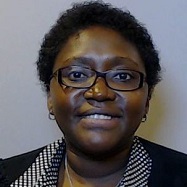|
|
|
|
|
|
|
|
Jane Zwart | English
Ministry depends upon using language in ways that are generous, winsome, and wise, and students who choose a major in English will be equipped to do just that. After all, testimonies belong to the genre of story, sermons to the genre of the essay, and prayers and psalms and hymns to the genre of poetry. In apprenticing students to read and write in these genres, then, their English classes will teach them to incarnate, in their words, the power of the gospel. Studying English will also prepare them to enter diverse cultural and discourse communities with sensitivity and insight. And their courses will strengthen them in interpreting the literature of the Bible as well as the life stories of those to whom they minister. Indeed, our curriculum in literature, writing, and linguistics—including the internship that all English majors complete—gives students in Christian ministry studies a host of talents to invest for the kingdom of God.
Samuel Smartt | Film and Media
The most obvious way in which students with film and media degrees serve in Christian ministries is by providing audiovisual support for worship services. We have many alumni who work full or part time for churches in different capacities—event coverage, streaming service, worship videos, social media, and more. In the liberal arts context Calvin provides, however, not all film and media students go on to media-related careers, and we have had alumni enter the ministry full time. The experiences gained in the film and media major working with others to communicate a message to an audience equips students to serve their congregations in many ways, either as a volunteer or a staff member.
We actively encourage our students to combine their study in film and media with other programs or co-curricular activities. Often this combination will provide students with a unique direction to follow. The schedule of the program also affords students flexibility to study abroad or at the Los Angeles Film Studies Center.
James Skillen | Geology, Geography & Environmental Studies
“God is in the process of redeeming the creation from the forces of sin and death. Environmental stewardship is, therefore, a labor of imagination and hope oriented toward God’s coming kingdom. For this second reason, much of the work of Christian environmental stewardship needs to take place in communities of faith as people gather in hope around the Eucharistic table. By starting with issues of local and immediate concern, these communities can explore the kinds of compromise solutions that are sensitive to the details of that place.”
Skillen, James R. “Made in the Image of God and the Earth: Understanding Our Place in God's Creation.” The Cresset 71, no. 3 (2008) 6–13.
Check out this article on the Calvin Institute of Christian Worship website in which Skillen speaks to the ways environmental studies students learn to practice life and ministry that affirm the physical world God created and trust the sovereignty of God and the redemptive work of Jesus Christ.
Elizabeth Oommen | Speech Pathology and Audiology
At the heart of speech language pathologists’ work is the human connection through communication. A critical role for us is facilitating our clients’ successful communication in order to link them with their environments and empower them to participate within their environments. This seems to be a necessary component of any ministry.
Speech Pathology offers a five-year BA–MA program and a four-year BA program. While the Ministry Leadership Cohort program involves coursework, it is possible to fit this coursework into the BA–MA program if the student begins with some already-completed credits or if they take four years to complete the undergraduate portion of the program. Two courses in the Ministry Leadership Cohort program count for core, so it would add five extra credits.
Adejoke B. Ayoola | Nursing
One of the reasons many nursing students and nurses become interested in the nursing profession is because they love caring for others. Caring is a foundational value for nursing and defines what nurses believe is their primary task.1 At the core of Christian ministry is Christ’s care for the well-being of those hurting from physical and emotional needs (Luke 4:18). Christ was involved in the ministry of caring, he was compassionate, and he was an advocate for the vulnerable. Undergraduate preparation from a Christian perspective in the Calvin Department of Nursing equips future nurses with the knowledge and skills to deliver effective and quality care. Students with nursing degrees will be able to serve in churches and other Christian ministries as the hands and feet of Christ.2 They are equipped to demonstrate Christlike attributes as they use their skills to care for those who hurt in their churches and communities. Holistic nursing care is comprehensive and focuses on meeting the healthcare needs of the whole person—mind, body, spirit, and emotions. Nursing students are trained to provide holistic care in and across all environmental settings ranging from the client’s home, school, hospital, church, and community. They are also trained to focus on individual, family, community, and population well-being as they monitor and manage the various aspects of the human person to foster health.3
Nursing students with a deep desire to serve the church or other Christian ministries with their nursing knowledge and skills will benefit from participating in the Ministry Leadership Cohort program. This program and their nursing education will further help students to effectively serve in different roles in the community. For example, nursing education equips our students to effectively teach and communicate relevant health information, thus promoting the physical and emotional health of the congregation and the community where they serve as Christ’s disciples. They are trained to be designers, coordinators, and managers of care, and as such they will be able to organize and lead health promotion activities in the church and in the community. As nurses, they will serve as health liaisons, parish nurses, and coordinators of health/welfare committees in the church or other Christian ministries. Nursing graduates with ministry leadership experiences will work with pastors, elders, and deacons to provide relevant health-related guidance and information to church members as needed. But care delivery extends beyond the church, the hospital, and the local community. Nursing students in this program will also be equipped to use their professional education and ministry leadership training to provide basic healthcare in the different parts of the world that their vocation may take them.
References
- Chambliss, D. F. Beyond Caring: Hospitals, Nurses, and the Social Organization of Ethics. (University of Chicago Press, 1996).
- Baker, J. A. Spiritual Care in Nursing. (Calvin College, Grand Rapids, MI, 2006).
- American Association of Colleges of Nursing (AACN). The Essentials of Baccalaureate Education for Professional Nursing Practice, https://www.aacnnursing.org/Education-Resources/AACN-Essentials. (Accessed: 19th December 2018)


.jpg?language_id=1)
.jpg?language_id=1)
.jpg?language_id=1)

